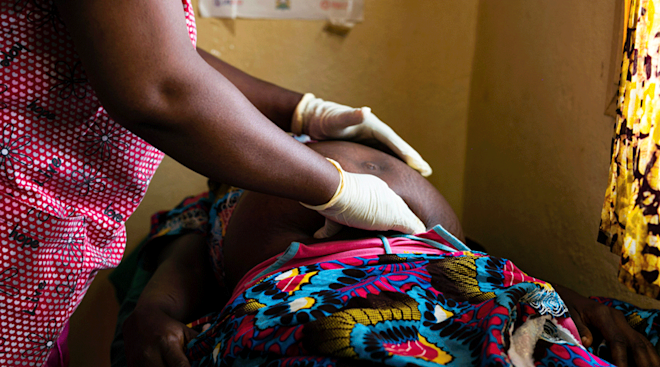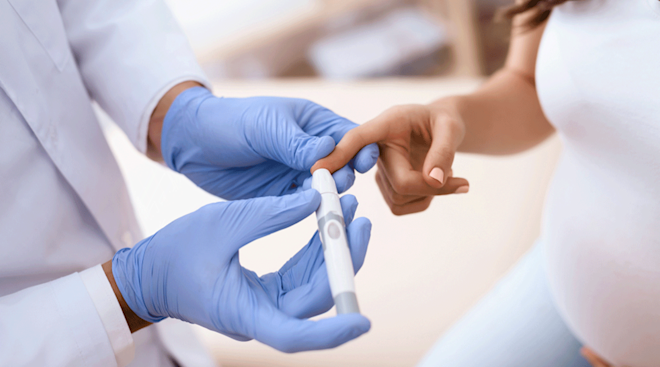This New Blood Test May Be Able to Predict Your Risk of Preterm Birth
It’s totally natural to be eager for baby’s arrival—you just don’t want to meet baby too soon. There are serious risks associated with preterm birth, including underdeveloped organs, developmental delays and possibly even death. The frustrating thing is that while there are certain known factors that can increase your risk, experts still aren’t sure what causes women to deliver prematurely or how to prevent it. That all might be about to change.
Two new experimental blood tests may be able to not only precisely pinpoint how far along a woman is in her pregnancy, but also accurately predict her risk of delivering prematurely, which could have huge long-term effects on the health of the baby.
“We have made a discovery on an important problem, but this is just the beginning of the story, as our work needs to be validated in a large (clinical trial) before it becomes medically useful,” Stephen R. Quake, senior study author from Stanford University, tells Reuters Health.
The first proof-of-concept study, published in the journal Science, used the fetal genetic material of 31 healthy, pregnant women—known as cell-free RNA (cfRNA), which circulates in a mother’s bloodstream—to predict the fetal age and delivery date within 14 days of the actual gestational age at delivery. That means this blood test is about as accurate as the current method, which uses an ultrasound and the date of the woman’s last menstrual period to estimate how far along the pregnancy is. The exciting part? The blood test is cheaper than the expensive scan and doesn’t rely on the mom-to-be’s memory (because who honestly knows when their last period was off the top of her head?).
Researchers paired this with a second study of 38 women who were at risk for preterm birth, and they were able to identify seven cfRNAs that accurately predicted which women would deliver prematurely and which would carry to full term.
“The preterm birth result is important because of the tremendous potential impact on human health—something like 15 million babies each year are affected, and currently there are no good ways to predict who is at risk,” Quake says.
Currently, assessing whether someone is at risk for preterm labor is difficult, since most of the symptoms—low back discomfort, cramps, vaginal discharge—are common and normal during pregnancy. While there’s no surefire way to prevent preterm labor, knowing whether a patient is at risk could give doctors a head start on treatment like corticosteroid injections, which help speed up the development of baby’s lungs, or magnesium sulfate, which can help reduce the risk of cerebral palsy in preterm infants.
Please note: The Bump and the materials and information it contains are not intended to, and do not constitute, medical or other health advice or diagnosis and should not be used as such. You should always consult with a qualified physician or health professional about your specific circumstances.
Navigate forward to interact with the calendar and select a date. Press the question mark key to get the keyboard shortcuts for changing dates.




















































